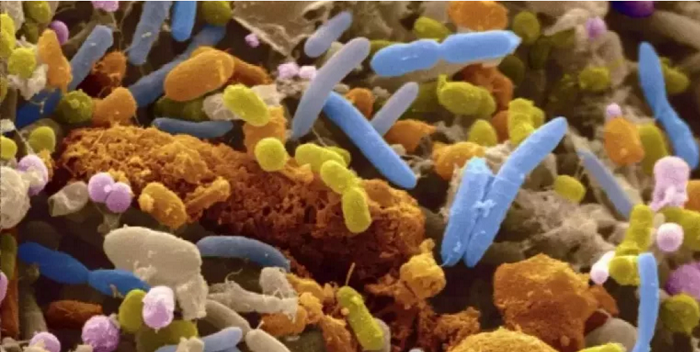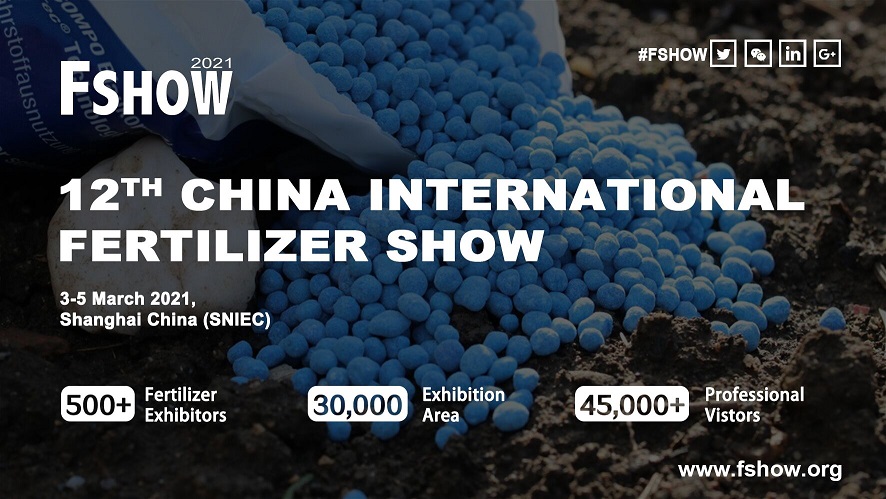
Exhibition time: 17-19 March, 2026 Shanghai, China
 中文
中文

Exhibition time: 17-19 March, 2026 Shanghai, China
 中文
中文
As Europe moves to reduce its reliance on agrochemicals in the farming system over the next 10 years and beyond, a crucial question emerges: what replaces them? Agricultural biotechnology could provide the answer.
The use of agrochemicals — pesticides, fertilizers, and plant growth enhancers — has been crucial to humanity over the last century. They’ve allowed agricultural productivity to keep up with the most drastic period of population growth in our history, and have saved billions from starvation. Yet, their impact on the environment has become too profound to ignore, and they’re increasingly seen as 20th-century instruments that are ill-suited for 21st-century challenges.
Recognizing this shift, the EU has recently laid out a series of targets to dramatically reduce the amounts of chemicals used in European farms by 2030. These include reducing by 50% the use of chemical and hazardous pesticides as well as reducing fertilizer use by 20%.

Achieving these goals without experiencing a massive drop in yields will be no mean feat. Turning to innovative agricultural biotechnology could solve this conundrum, and make the transition away from agrochemicals far less painful.
Historically, agri-biotech has had a difficult relationship with EU regulators. The European Commission’s long-standing resistance towards the adoption of genetically modified crops has frustrated many researchers and companies across the continent who view such strains as critical tools in the development of a more productive, more robust, and more sustainable agricultural system.
However, agricultural biotechnology extends much further than just GM crops: scientists have applied biotechnology to create a range of biological solutions for improving the way we grow crops, without contravening existing regulations around genetic modification of the crops themselves.

Pheromones for pest control
Chemical insecticides are blunt instruments, designed to control insect pests by simply killing them en masse. This scorched-earth approach, when used over decades, causes serious environmental problems. These insecticides are often imprecise and long-lasting, affecting not just the target pest species but also the area’s wider biodiversity. This collateral damage is suspected to be a key driver behind the worrying global decline in insect abundance — including in crucial pollinator species such as bees.
BioPhero, a spinout from the Technical University of Denmark, is pioneering the use of insect pheromones as a sustainable alternative to chemical insecticides. The company specifically targets moths, which are a significant pest in a variety of crops.
“Pheromones are natural signal molecules used by insects that are non-toxic, non-persistent, and achieve the objective of protecting crops by confusing insects and preventing them from mating, rather than killing them,” explained Irina Borodina, BioPhero’s founder and CTO.
“Moreover, pheromone-based crop protection is species-specific, which means that it is limited to key target pests, leaving the biodiversity intact.”
BioPhero’s pheromone intervention confuses the male moths by masking the female’s true location in a plume of decoy signals. With fewer moths now getting laid (and by extension, their eggs), the number of crop-munching larvae is kept to a lower, much more manageable level. This approach also has the added advantage that, because it is not lethal, it is less likely to drive the emergence of resistance — a major problem with conventional insecticides.
“Agricultural innovation in the mainstream crops has for a century been driven by designing new ways to kill insects. ‘Dead bugs’ have been the expected proof of efficacy and the ‘deploy and forget’ simplicity of chemical insecticides has been the standard,” said Kristian Ebbensgaard, the company’s CEO. “We believe it is the right time to put agriculture on the path toward a more sustainable future.”
The use of pheromones for insect control has, until now, been a niche market within agriculture. So far it was only economical for the highest-value crops, such as fruits and nuts, due to the costly process of producing pheromones chemically.
To overcome this affordability obstacle, BioPhero has developed a fermentation process – similar to beer brewing – where engineered yeast produce moth pheromones. This enables the cheap, industrial-scale production of the pheromones, making this method of sustainable crop protection economically viable for less expensive but more widely grown ‘row crops’ such as soybean, corn, and rice.
Protein biocontrols
Crop pests and pathogens come in all shapes and sizes, and from multiple kingdoms of life; not just animals such as insects, but fungi and bacteria too. This poses an enormous challenge for the development of biocontrol approaches that are both highly-targeted and also adaptable for a range of different organisms. Biotalys (formerly Agrosavfe), a spin-off from the Flanders Institute of Biotechnology, proposes that the solution to this challenge lies in one of nature’s most versatile biomolecules: proteins.
The Belgian biotech, founded in 2013, is developing ‘agrobodies’ — small proteins designed to target specific pests and pathogens. These proteins are inspired by the remarkable natural qualities of llama antibodies.
“The llama is our source of inspiration. Llamas and other members of the Camelidae family, as well as sharks, have a specific immune system with much simpler antibodies than human ones,” Patrice Selles, CEO of Biotalys, told me. “From these antibodies one can identify small proteins [that] demonstrate interesting physicochemical properties and stability, with effective biological activities.”
The company can rapidly screen and select the most effective bioactive proteins against each target pest or pathogen species, produce them at scale through microbial fermentation, and formulate them into user-friendly crop protection products.
“Our targeted and automated approach during the discovery and development phase, as well as a straightforward regulatory pathway, enable the development of novel biocontrols four years faster and at a significantly lower cost compared to the generation of chemical active ingredients,” explained Selles.
The end results are agrobody proteins that tackle the target pests or pathogens, have no impact on the soil or other species (including humans) and are biodegradable, breaking down over time into simple amino acids that the plants can use as a nutrient source.
Biotalys’ most advanced product, Bio-Fun1, targets the fungus Botrytis cinerea –– a pathogen that affects over 200 plant species and costs farmers tens of billions of dollars in annual losses globally. The company aims to launch Bio-Fun1 in 2022, with controls against insects and bacteria planned to follow a few years later.
“The EU target to reduce chemical pesticides by 50% is certainly a sound approach only if it is concomitant with a broader target to enable new technologies,” said Patrice.
“Our novel protein-based biocontrols combine the best of both worlds: the consistent efficacy of chemical crop protection agents and the clean safety profile of biologicals, and can be applied both pre- and post-harvest… thereby increasing shelf-life, reducing food waste, and reducing chemical residues in food.”
Recruiting soil bacteria
The field of microbiome research has exploded in recent years, catalyzed by major advances in our ability to characterize the nature and impacts of resident microbial communities on their host organism. It’s a topic that regularly hits the headlines in relation to human gut bacteria, which biotechs are racing to harness for therapeutic intervention, but it has also become a focal point in agricultural research. Plants, after all, have a microbiome too.
Perhaps the most prominent agri-biotech company working to exploit the web of symbiotic relationships between plants and bacteria is California-based Pivot Bio. The company’s flagship product, PROVEN, introduces genetically engineered bacteria into the soil that can fix nitrogen from the air and provide it directly to crops.
Already in its second year on the US market, PROVEN reduces or even replaces the need for synthetic nitrogen fertilizers, the use of which the EU aims to reduce by 20%. Nitrogen fertilizers carry heavy environmental costs, with run-off into nearby water systems often wreaking havoc on the local ecology, and their manufacture and usage being a huge source of greenhouse gases. So much so, in fact, that a 2018 study estimated that they’re responsible for 14% of dietary greenhouse gas emissions on average across the EU.
Several European biotechs are investigating the use of plant-boosting microbes as replacements for agrochemicals, including Xtrem Biotech in Spain and ApheaBio in Belgium. Successfully introducing helpful microbes into the soil in real-life field conditions has proven tricky, however, as environmental factors often impede their effectiveness and stability.
To overcome this limitation, French biotech Kapsera has developed tiny biodegradable microcapsules made of alginate (a material derived from algae) that can enhance the delivery and performance of biofertilizers and biopesticides.
“Farmers are expecting reliability and stability — exactly what we are trying to bring in these products. Natural active ingredients, such as microbes, are more fragile and need to be formulated in a smarter way to get stable and performant products whatever the field conditions,” Antoine Drevelle, CEO of Kapsera, told me.
Each microcapsule has a liquid core that houses and protects the microbes, surrounded by an alginate shell that allows for nutrient and gas exchange. After two years of lab development, Kapsera is now scaling up production and expects the technology will be ready for the market in only a few years time. Drevelle believes that this unique encapsulation technology will address the major performance bottleneck of biological fertilizers, paving the way for their mass adoption in agriculture.
The challenge faced by European farmers in light of the new EU targets is extremely difficult: to keep improving productivity while reducing the use of chemical aids. These two goals may seem incompatible, but the emerging array of biological solutions are proving that sustainability and productivity don’t have to be mutually exclusive. And with the EU agricultural biotechnology industry raising €245 million in 2019 — a 21% year-on-year increase — a new agricultural revolution may be closer than we think.
From Agropages
